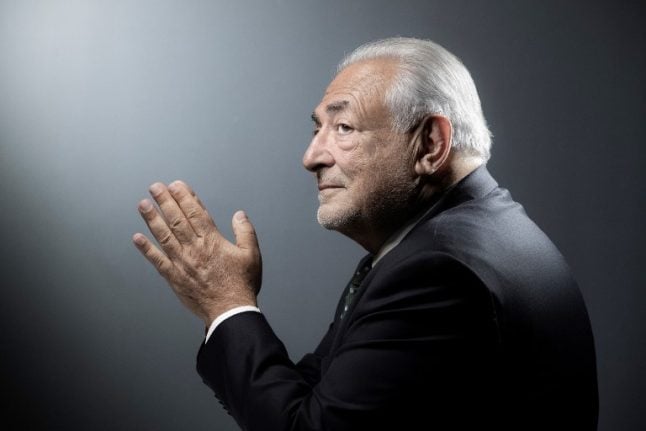The 62-year-old Socialist politician, who returned to France this month after the collapse of another rape investigation against him in New York, was interviewed by French police on Tuesday over Tristane Banon’s allegations.
According to the official who is close to the inquiry and spoke on condition of anonymity, Strauss-Kahn denied the claim by Banon, now 32, that he assaulted and tried to rape her during an interview in a Paris flat eight years ago.
“But he conceded that he had made advances to her, without being very precise about the nature of these advances,” the official told AFP.
According to a report on the news website lexpress.fr, Strauss-Kahn admitted he tried to kiss Banon, but when she refused he did not insist.
In a statement sent to AFP, Strauss-Kahn’s lawyers Henri Leclerc and Frederique Baulieu said the lexpress.fr account “is consistent with what our client has always said, namely, that the scene described by Ms. Banon is imaginary.”
Banon has previously said that the portly economist grabbed her “like a rutting chimpanzee”, wrestled with her on the floor and tried to take her jeans off, forcing her to kick and punch him to escape.
She had spoken of the alleged attack on television in 2007, but only pressed charges this year after Strauss-Kahn was arrested in New York and accused of sexually assaulting Nafissatou Diallo, a hotel chambermaid.
That case was thrown out after the prosecutor lost confidence in the alleged victim’s testimony. Strauss-Kahn says he had consensual sex with Diallo.
Diallo has filed a civil complaint against him in a New York court and a judge there on Friday granted his lawyer’s request for more time to prepare their defence.
Strauss-Kahn still faces investigation in France over the Banon case, but has denied any wrongdoing and lodged a countersuit for defamation.
The Socialist politician, who many once thought had the best chance of unseating French President Nicolas Sarkozy in next year’s polls, is on Sunday expected to break his silence about the sexual assault allegations that forced him to resign his post at the International Monetary Fund to defend himself.
Strauss-Kahn has agreed to a prime time interview with the TF1 televion station, and will take questions from journalist Claire Chazal, France’s Le Point Magazine reported on its website.
Chazal is a friend and former colleague of Strauss-Kahn’s loyal wife, Anne Sinclair.
Media analysts say Chazel is not known for aggressive questioning and so Strauss-Kahn could prepare his answers in advance, but he was still taking a risk with a live television appearance.


 Please whitelist us to continue reading.
Please whitelist us to continue reading.
Member comments